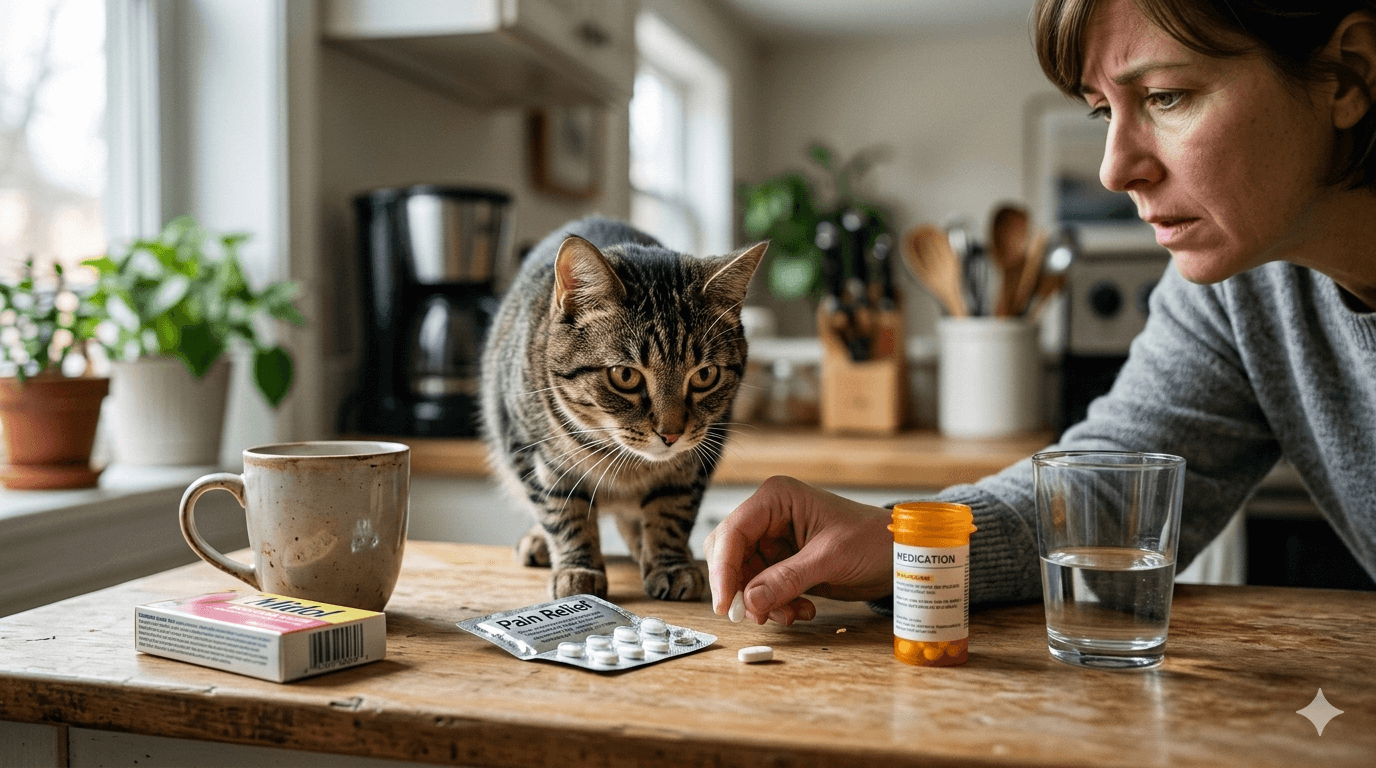Understanding Cat Stomach Bug Symptoms: A Guide for Concerned Pet Owners
Cats are known for their independent nature, but when they fall ill, it’s heartbreaking to see them uncomfortable or in pain. One common issue that affects feline companions is a stomach bug, which can manifest in various ways. Whether you’re a seasoned cat owner or new to pet parenting, recognizing the signs of a stomach bug is crucial for ensuring your furry friend gets the care they need. In this guide, we’ll explore the symptoms, causes, and steps you can take to help your cat recover quickly.
Common Symptoms of a Cat Stomach Bug
When your cat is experiencing a stomach bug, their behavior and physical condition may change noticeably. Here are some common symptoms to watch out for:
Vomiting: Cats may vomit frequently, sometimes bringing up undigested food or bile.
Diarrhea: Loose or watery stools are a telltale sign of digestive upset.
Lethargy: Your cat might seem unusually tired or unwilling to engage in play.
Loss of Appetite: A sudden disinterest in food can indicate discomfort or nausea.
Dehydration: Look for dry gums, sunken eyes, or decreased skin elasticity as signs of dehydration.
If you notice any combination of these symptoms, it’s essential to monitor your cat closely and consult a veterinarian if the condition persists. Early intervention can make all the difference in your cat’s recovery.
Possible Causes of Stomach Bugs in Cats
A stomach bug in cats can stem from a variety of sources. Understanding the potential causes can help you take preventive measures and address the issue effectively. Here are some common culprits:
Dietary Changes: Sudden shifts in your cat’s diet can upset their sensitive stomach.
Bacterial Infections: Harmful bacteria like salmonella or E. coli can lead to gastrointestinal distress.
Viral Infections: Feline panleukopenia (also known as feline distemper) is a viral cause of stomach issues.
Parasites: Worms or protozoa such as giardia can wreak havoc on your cat’s digestive system.
Toxins or Foreign Objects: Ingesting toxic plants or non-food items can trigger stomach problems.
Identifying the underlying cause is key to providing appropriate treatment. If you’re unsure what triggered your cat’s symptoms, a vet can perform diagnostic tests to pinpoint the issue.
Check this guide 👉Cat Stomach Tumor: Best 7 Expert Tips!
Check this guide 👉Why Does My Cat Lay on My Stomach? Best 7 Expert Tips!
Check this guide 👉Why Is My Cats Stomach Bloated and Hard? Best 7 Tips!

Preventive Measures | Treatment Options |
|---|---|
Gradual dietary transitions | Fluid therapy for dehydration |
Regular deworming treatments | Antibiotics for bacterial infections |
Keeping toxic substances out of reach | Anti-nausea medications |
Providing fresh, clean water | Probiotics to restore gut health |
Vaccinations against viruses | Veterinary monitoring for severe cases |
How to Care for a Cat with a Stomach Bug at Home
While veterinary care is often necessary, there are several things you can do at home to support your cat’s recovery. Here are some practical tips:
Provide Access to Fresh Water: Ensure your cat stays hydrated by offering clean water frequently.
Offer Bland Food: Plain boiled chicken or pumpkin puree can be easier on their stomach than regular meals.
Create a Quiet Space: Allow your cat to rest in a calm, stress-free environment.
Monitor Their Condition: Keep track of symptoms and note any changes in severity.
Avoid Self-Medicating: Never give human medications to your cat without consulting a vet.
With proper care and attention, most cats recover from mild stomach bugs within a few days. However, always seek professional advice if symptoms worsen.
When to Seek Immediate Veterinary Attention
Some symptoms require urgent care to prevent complications. Here’s when you should contact your veterinarian right away:
Persistent Vomiting: If your cat vomits multiple times in a short period.
Blood in Stool or Vomit: This could indicate a serious underlying issue.
Severe Lethargy: A cat that won’t move or respond to stimuli needs immediate help.
Difficulty Breathing: Labored breathing may signal systemic illness.
Swollen Abdomen: An enlarged belly could point to intestinal blockage or other emergencies.
Trust your instincts—if something feels off, it’s better to err on the side of caution and seek professional guidance.
Why Diet Matters in Your Cat’s Recovery
When your cat is recovering from a stomach bug, their digestive system is still sensitive. Feeding them the wrong foods can worsen their condition or delay recovery. Here’s a list of foods you should avoid during this critical time:
Dairy Products: Most cats are lactose intolerant, and dairy can cause further digestive upset.
Fatty Meats: High-fat foods like bacon or sausage are hard to digest and may irritate the stomach.
Raw Fish: While cats love fish, raw varieties can contain harmful bacteria or parasites.
Grapes and Raisins: These fruits are toxic to cats and can lead to kidney failure.
Chocolate: Even small amounts of chocolate can be poisonous to felines.
By steering clear of these foods, you’ll help your cat heal faster and avoid unnecessary complications. Stick to bland, vet-approved options to ensure a smooth recovery.
How to Know Your Cat Is on the Mend
As your cat recovers from a stomach bug, certain behaviors and physical signs will indicate they’re feeling better. Keep an eye out for these positive changes:
Increased Appetite: A return to normal eating habits is a good sign their stomach has settled.
Normal Bowel Movements: Firm stools suggest their digestive system is back on track.
Playful Behavior: If your cat starts engaging in play, they’re likely regaining energy.
Grooming Habits Resume: Cats are meticulous groomers, so licking and cleaning themselves again is a positive indicator.
Bright Eyes and Alertness: Clear eyes and responsiveness show they’re no longer lethargic.
These signs collectively signal that your cat is recovering well. However, continue monitoring them to ensure no lingering issues remain.
Building a Stronger Digestive System for Your Cat
Once your cat has recovered from a stomach bug, it’s important to focus on long-term strategies to support their digestive health. Here are some steps you can take to prevent future episodes:
Regular Vet Check-Ups: Routine visits can catch potential issues before they escalate.
Balanced Diet: Feed high-quality cat food formulated for digestive health.
Probiotic Supplements: These can promote a healthy gut microbiome and boost immunity.
Stress Reduction: Minimize environmental stressors that can affect their digestion.
Hydration Encouragement: Ensure your cat always has access to fresh, clean water.
By implementing these practices, you’ll not only improve your cat’s overall health but also reduce the likelihood of another stomach bug. A proactive approach is key to keeping your feline friend happy and healthy.
Frequently Asked Questions About Cat Stomach Bugs
How long does a cat stomach bug last?
Most mild cases resolve within 24–48 hours. If symptoms persist beyond this timeframe, consult a vet.
Can I give my cat over-the-counter medicine for nausea?
No, many human medications are toxic to cats. Always consult your vet before administering any treatment.
Is a stomach bug contagious between cats?
Some causes, like viruses or parasites, can spread between cats. Keep infected cats isolated to prevent transmission.
What should I feed my cat during recovery?
Opt for bland, easily digestible foods like boiled chicken or plain pumpkin puree until their appetite returns.
How can I prevent stomach bugs in my cat?
Maintain a consistent diet, keep your home free of toxins, and stay up-to-date on vaccinations and parasite control.
Supporting Your Cat Through a Stomach Bug
Caring for a cat with a stomach bug can be stressful, but understanding the symptoms and knowing how to respond can make the process smoother. By staying vigilant and seeking veterinary care when needed, you can ensure your feline companion recovers fully and returns to their playful self. Remember, prevention is always better than cure—so prioritize a healthy lifestyle for your cat to minimize the risk of future illnesses. With love, patience, and proper care, your cat will bounce back in no time!
Can I Give My Cat Midol? Best 7 Expert Tips! – Learn the risks, symptoms, and safe alternatives to keep your cat healthy and avoid toxic reactions.
Can I Give My Dog Midol? Best 7 Expert Tips! – Discover the risks, safe alternatives, and expert advice to keep your dog safe from accidental poisoning.
Maximum Weight for Cats on Planes: Best 7 Expert Tips! – Learn airline policies, tips to stay compliant, and ensure safe travels for your feline friend.
Max Weight for Dogs on Planes: Best 7 Expert Tips! – Discover airline weight limits, safe travel tips, and solutions for flying with your dog stress-free.





